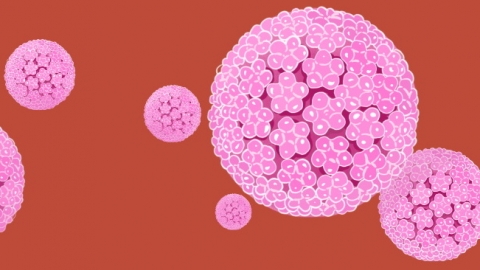What types of HPV infection can the HPV vaccine prevent?
Generally, HPV refers to human papillomavirus, and HPV vaccine refers to the human papillomavirus vaccine. The human papillomavirus vaccine can prevent infections caused by various types of human papillomavirus, including human papillomavirus type 16 infection, human papillomavirus type 18 infection, human papillomavirus type 6 infection, human papillomavirus type 11 infection, human papillomavirus type 31 infection, and others. A detailed explanation is as follows:

1. Human Papillomavirus Type 16 Infection
Human papillomavirus type 16 is a primary high-risk type that causes cervical cancer. The carcinogenic mechanism of this virus mainly involves its viral genes integrating into the host cell genome, leading to loss of cell cycle control and malignant transformation of normal cervical epithelial cells. The human papillomavirus vaccine can induce the body to produce neutralizing antibodies against human papillomavirus type 16; when the virus invades the body, these antibodies can prevent the virus from entering host cells.
2. Human Papillomavirus Type 18 Infection
Human papillomavirus type 18 also belongs to the high-risk types of human papillomavirus. Its viral proteins E6 and E7 can interfere with the normal physiological functions of host cells, such as inhibiting apoptosis and promoting cell proliferation. The antigen components in the human papillomavirus vaccine can stimulate the body's immune system to generate specific immune responses, preventing infection by human papillomavirus type 18.
3. Human Papillomavirus Type 6 Infection
Human papillomavirus type 6 belongs to the low-risk types of human papillomavirus. It primarily causes genital warts, such as condyloma acuminatum. After infecting the body, this virus causes benign proliferative lesions on the surface of the skin and mucous membranes. Antigens in the vaccine can stimulate the body to produce antibodies that bind to the virus when human papillomavirus type 6 attempts to infect, preventing the virus from adhering to and invading the mucosal and skin surfaces, thereby preventing the occurrence of genital warts.
4. Human Papillomavirus Type 11 Infection
Human papillomavirus type 11 is also a low-risk type of human papillomavirus and often causes genital warts together with human papillomavirus type 6. It causes wart-like lesions on the skin and mucous membranes of the genital and anal areas. The human papillomavirus vaccine activates the body's immune system, enabling it to recognize and resist the invasion of human papillomavirus type 11, thereby reducing the incidence of genital warts.
5. Human Papillomavirus Type 31 Infection
Human papillomavirus type 31 is a high-risk type of human papillomavirus. The viral genes it carries can exert carcinogenic effects within host cells. The human papillomavirus vaccine can induce the body to develop immune protection against human papillomavirus type 31. When the body is exposed to this virus, the immune system can promptly respond, preventing viral infection and subsequent cellular lesions.
It is important to maintain good hygiene during sexual activity, maintain a single sexual partner, avoid cross-infection among multiple sexual partners, and correctly use condoms during sexual intercourse to reduce the risk of infection.





